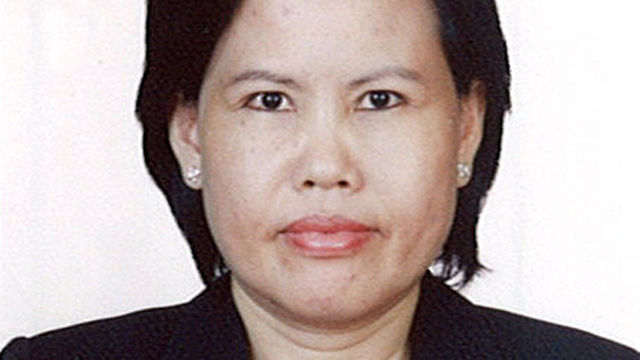
By Sara Fabunan
The Manila Standard Today
Posted on August 19, 2012
The Cambodian government has appointed Foreign Affairs undersecretary
Tout Panha (pictured) as the new ambassador to the Philippines, replacing Hos
Sereython, who struck a raw nerve with his remark that the Philippines
and Vietnam were playing “dirty politics” on the South China Sea issue.
In a letter to a major daily, Sereython accused Manila and Hanoi of
stalling last month’s Asean foreign ministers meeting in Phnom Penh by
pushing for an “inflexible and non-negotiable” position on territorial
disputes with China in the West Philippine Sea (South China Sea).
After the story came out, Sereython was summoned by the Foreign
Affairs to explain his remark, but the Cambodian envoy did not appear,
pleading illness.
On July 30, after receiving a note verbale from the DFA, Sereython
and his family left for Cambodia. He was sent off at the airport by
Cambodian ministry officials and was escorted by airport police instead
of the usual protocol officers.
Last week, Cambodian Foreign Minister Hor Namhong had announced that
Sereython had been recalled and would be immediately replaced.
Sereython’s term was supposed to end on July 27, 2013. Instead, the
new envoy will complete Sereython’s remaining year as Cambodian
ambassador to the Philippines, and will end at the close of Cambodia’s
chairmanship of the Association of South East Asian Nations.
Cambodian Foreign Ministry spokesman Koy Koung explained that the
early recall of Sereython and appointment of a new ambassador was
normal.
“There’s nothing strange about the government or the ministry
changing ambassador as it was seen to be necessary,” he said in a
statement posted in a state-owned website Cambodia Herald.
“The change of ambassador to the Philippines is a normal thing and
there is no change in Cambodia-Philippine relations,” he added.
On Wednesday, Department of Foreign Affairs Albert del Rosario confirmed that a female ambassador was set to replace Sereython.
“She’s a lady who is quite high up in the ministry. I think that she
holds an assistant Secretary Rank now,” Del Rosario said without adding
any more details on her background.
Del Rosario had said that Sereython’s recent remark does not affect the Philippine’s 55-year bilateral relations with Cambodia.
“I don’t think if affects the bilateral relations at all. I like to
think that we are looking at healthy bilateral relations with Cambodia,”
Del Rosario said.
DFA spokesman Rual Hernandez also explained that it is the prerogative of governments to appoint or to recall ambassadors.
“The appointment of a new ambassador as well as the request for
facilitation of the agrément attests to the continued commitment to
strengthen relations,” he said.
Hernandez said a foreign minister recalls its representative because
he feels that the envoy could function better in other countries, or his
or her expertise is necessary in another place, or his or her
performance in his or her current posting was not anymore effective.
Cambodia is known as a staunch ally of China, which has an ongoing
dispute with at least four Asean members—Vietnam,. Philippines, Vietnam
and Brunei—on overlapping claims in the West Philippine Sea.
The other claimant is Taiwan, a former province of mainland China.
Of the four claimants from the ASEAN, the Philippines and Vietnam
have recently clashed with China over claims on the Spratly Islands,
Paracel Islands, Macclesfield Bank and the Scarborough (Panatag) Shoal.
Beijing claims ownership of at least 90 percent the South China Sea
(West Philippine Sea), saying that it has sovereign rights to exploit
the rich resources in the islands.
Manila, however said it owns the territories within its 200-nautical
miles economic exclusive zones as provided by the United Nations
Convention on the Law of the Sea or Unclos.
Manila and Hanoi had both lodged several diplomatic protests over the increasing assertion of China over the disputed waters.

No comments:
Post a Comment